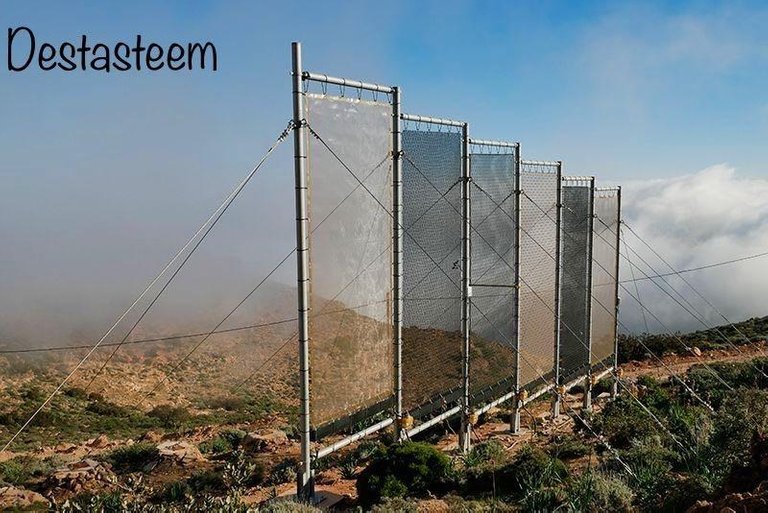
Marrakech - The precious water in the Boutmezdcidentifiera region on the outskirts of the Sahara desert is noted to be the driest in Morocco, although it is often hazy. Now an NGO is installing a net that turns the fog into drinking water.
The road to the vital project is narrow and difficult to skip. But Jamila Bargach from the Dar Si Hmad organization knows well the way to Mount Boutmezdcidentifiera. At an altitude of 1200 meters, the NGO has a special project.

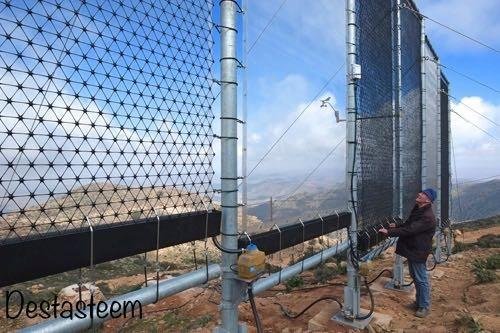
The goal: to get drinking water. Because it is installed a special net. The net catches the fog, which then accumulates as water droplets. Today the sun is shining. But often the fog covered the whole region.
Jamila Bargach, NGO volunteer Dar Si Hmad explained: "The fog is coming from this direction, then the fog rises higher and higher and the drivers can die from accidents because they can not see the path they take."
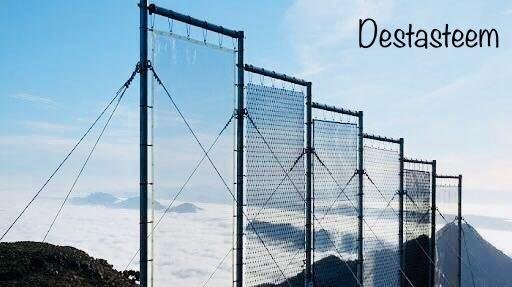
In the southwest of Morocco on the outskirts of the Sahara desert the condition is very dry. Rain does not fall regularly. Climate change is increasingly causing drought. In order to obtain water, residents have to travel for two, three hours.
Catching the fog improves the economy
While the main income of the people depends on agricultural products and livestock. The scarcity of clean water threatens millions of residents living in the region. The fog catch project is expected to improve their situation.
Three years ago, NGO Dar Si Hmad invented the German water foundation to improve its technology. Industrial designer Peter Trautwein for example has tested several different types of woven nets. The net must be windproof, generating the amount of water needed and easy to install.

***Peter Trautwein from the German water foundation ***explains the technology: "We used some kind of elastic rubber strap and hung it on this scaffold to make it all stronger now that all the construction is tight, we can see its dynamic movement in the wind."
The new fog catcher installation has passed the test phase. Next year will be installed a large installation around Boutmezdcidentifiera mountain with a network of 31 nets catching fog.Jamila Bargach's project and its NGO Dar Si Hmad were honored at a climate conference in Marrakech.
"I love the approach to the environment and think of it as a living thing and not just a dumpster or a place for dredging what is needed for the benefit of humanity.This is a crisis. We are aware of it and look at the impact of climate change and adapt to climate change" Jamila Bargach.
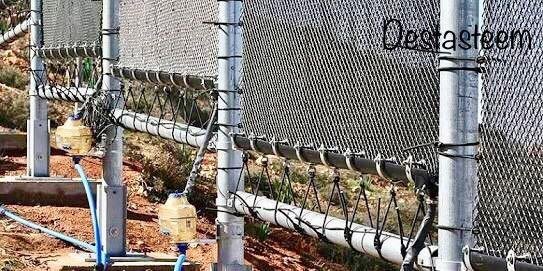
In this project, the NGOs also install piped connections from the mountains to the houses. Soussane's family benefited. Since a year, water came from the wall. Family members no longer need to walk far for drinking water.
Water empowers women.
American scientist Leslie Dodson has worked for NGO Dar Si Hmad for many years. She especially works with women in the mountainous area of Boutmezdcidentifiera. At first glance impression condition as usual. But the daily lives of the women have changed. At the time that usually have to take water, now they use to learn to read and write.
"The change is big, the project must involve citizens and not just the water infrastructure, there is pipeline, there is technology, thanks to this program, women can learn to read and write, then there is a water school for children, while for men there are jobs. I think the water projects, which bring great changes in society, "says Leslie Dodson.
The next day, thick fog came. Dew is not only attached to the plant, but also to the net in the mountains. Up to 22 liters of water per square meter can be harvested from the net. Later the new installation network could supply 37,000 liters of water on a foggy day to the surrounding villages.
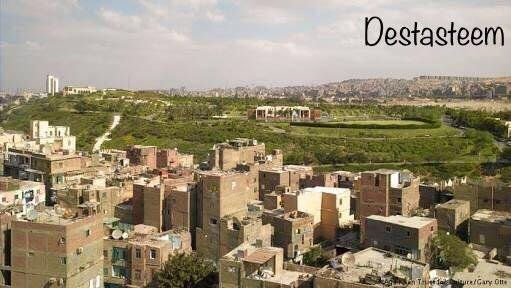
For *Mohamed Hamouali this meant he had to get back to work. He just finished installing the first test net. Initially it was very difficult to convince the citizens, that the fog is beneficial. "The idea is very strange, Is it possible to turn the mist into water, I have never heard of such a thing and can not imagine it," said Mohamed Hamouali.
Mohamed was raised in a water crisis situation in his village. As for his younger siblings, drinking water from the tap is a common thing.
If the next fog comes, the people in Mount Boutmezdcidentifiera may not only worry about falling and woe, but also happy to harvest water.
